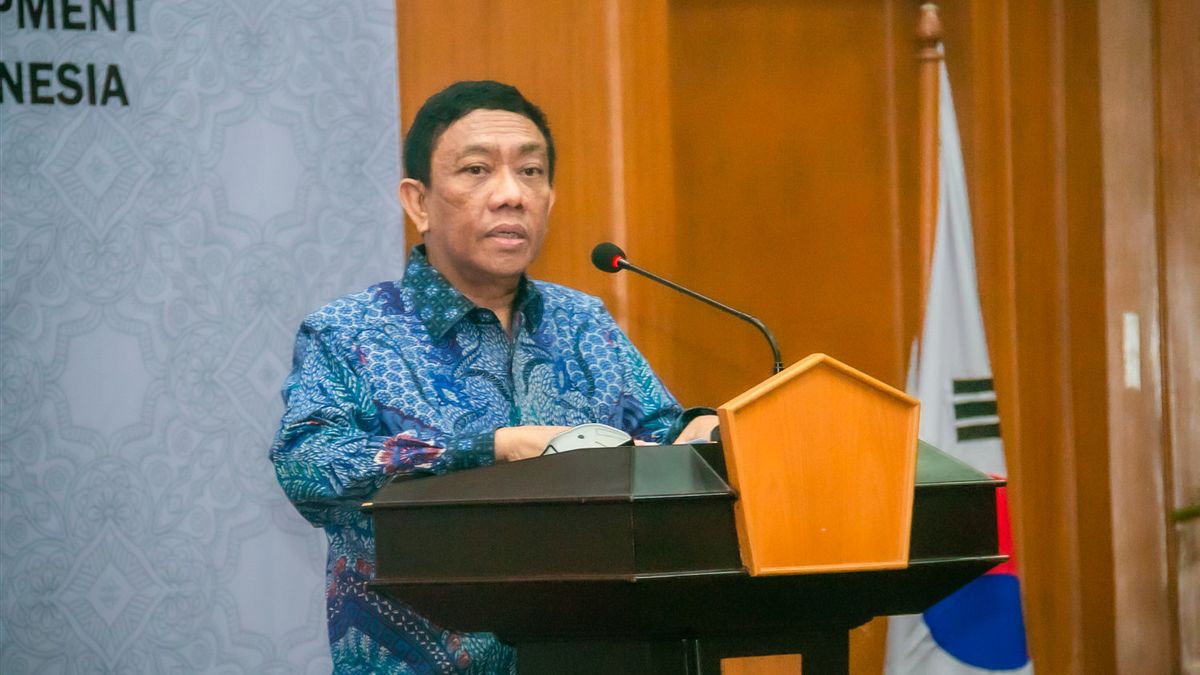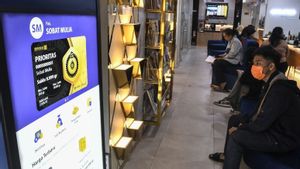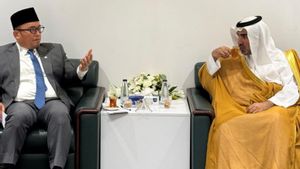JAKARTA - The Ministry of Industry (Kemenperin) predicts the need for industrial workers in 2024 to reach 20.2 million people.
Head of the Industrial Human Resources Development Agency (BPSDMI) of the Ministry of Industry, Arus Gunawan, said the need for industrial workforce continues to increase.
If averaged, the increasing need for additional industrial workers is around 682,000 workers in the 2021-2024 period.
The need for workers in the future will lead to workers who have special skills according to technological developments.
"The role of human resources in industrial development is very crucial, with fundamental changes due to the development of digital technology systems, it is estimated that many new jobs will require more special skills than lost jobs due to the application of automation technology," said Arus in Jakarta, Thursday, January 5.
In order for Indonesian industrial workers to have competence in accordance with industrial needs, said Arus, his party is actively preparing infrastructure for the competence of industrial human resources every year, one of which is through the development of the Indonesian National Work Competency Standard (SKKNI) and the Indonesian National Qualification Framework (KKNI).
The development of SKKNI and KKNI has a vital role in the development of industrial human resources in the country. SKKNI is a document on the formulation of the capabilities needed to carry out a competence.
According to Arus, the formulation of this capability will be a clear criterion regarding aspects of knowledge, skills and work attitudes, which need to be a learning material in competency-based education/training as well as competency test material in competency test activities.
The KKNI is a document that stipulates the level of competency qualifications and the packaging of competencies from work positions (occupation).
"Through the development of SKKNI and KKNI, it is hoped that there will be no competence gap between graduates of education/training with the need for the industrial sector in Indonesia," he said.
The KKNI will describe the profile of occupancy in industry and also the profile of education graduates/training, thus providing clear references in building competency-based education/training programs as well as competency testing schemes.
"Thus, the ability of graduates of educational institutions/training will be in accordance with the needs of the industry and graduates will also be able to have competency certificates after going through a competency test at the Professional Certification Institute (LSP)," he continued.
Throughout 2022, continued Arus, his party has facilitated the preparation of seven SKKNI Draft documents and three KKNI Draft documents. The SKKNI that has been prepared includes Four Roller Automotive Manufacturing, Jigs and Fixtures, Medical Device Furnitures, Skinfeeding, Electric Vehicle Service, Material Nano Engineering, and Renewable Energy Bioprocess Engineering.
Then, the Ministry of Industry has also compiled three Indonesian Ministries (KKNI), namely Textile Crafts, Stapel Stapel Industry Rayon Viscosa, and the Sinetic Serat Industry for Legislation.
"The preparation of SKKNI that has involved many parties is expected to reduce the mismatch problem between supply and demand for the provision of industrial human resources that have been happening in Indonesia," he said.
For your information, the Perumus Team in the preparation of SKKNI and KKNI consists of practitioners from industrial companies, academics, representatives of industrial associations, representatives of professional associations, representatives of the Professional Certification Institute (LSP).
The determination of the SKKNI document itself will be carried out by the Minister of Manpower and KKNI documents will be carried out by the relevant sector supervisors, namely the Minister of Industry.
The English, Chinese, Japanese, Arabic, and French versions are automatically generated by the AI. So there may still be inaccuracies in translating, please always see Indonesian as our main language. (system supported by DigitalSiber.id)












